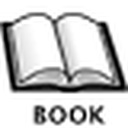Explore

Compiling and annotating a learner corpus for a morphologically rich language: CzeSL, a corpus of non-native Czech
0 Ungluers have
Faved this Work
Login to Fave
Learner corpora, linguistic collections documenting a language as used by learners, provide an important empirical foundation for language acquisition research and teaching practice. This book presents CzeSL, a corpus of non-native Czech, against the background of theoretical and practical issues in the current learner corpus research. Languages with rich morphology and relatively free word order, including Czech, are particularly challenging for the analysis of learner language. The authors address both the complexity of learner error annotation, describing three complementary annotation schemes, and the complexity of description of non-native Czech in terms of standard linguistic categories. The book discusses in detail practical aspects of the corpus creation: the process of collection and annotation itself, the supporting tools, the resulting data, their formats and search platforms. The chapter on use cases exemplifies the usefulness of learner corpora for teaching, language acquisition research, and computational linguistics. Any researcher developing learner corpora will surely appreciate the concluding chapter listing lessons learned and pitfalls to avoid.
This book is included in DOAB.
Why read this book? Have your say.
You must be logged in to comment.
Rights Information
Are you the author or publisher of this work? If so, you can claim it as yours by registering as an Unglue.it rights holder.Downloads
This work has been downloaded 88 times via unglue.it ebook links.
- 88 - pdf (CC BY-NC-ND) at dspace.cuni.cz.
Keywords
- corpora
- corpus linguistics
- Language
- learner corpora
- Linguistics
- Morphology
- Syntax
Editions


